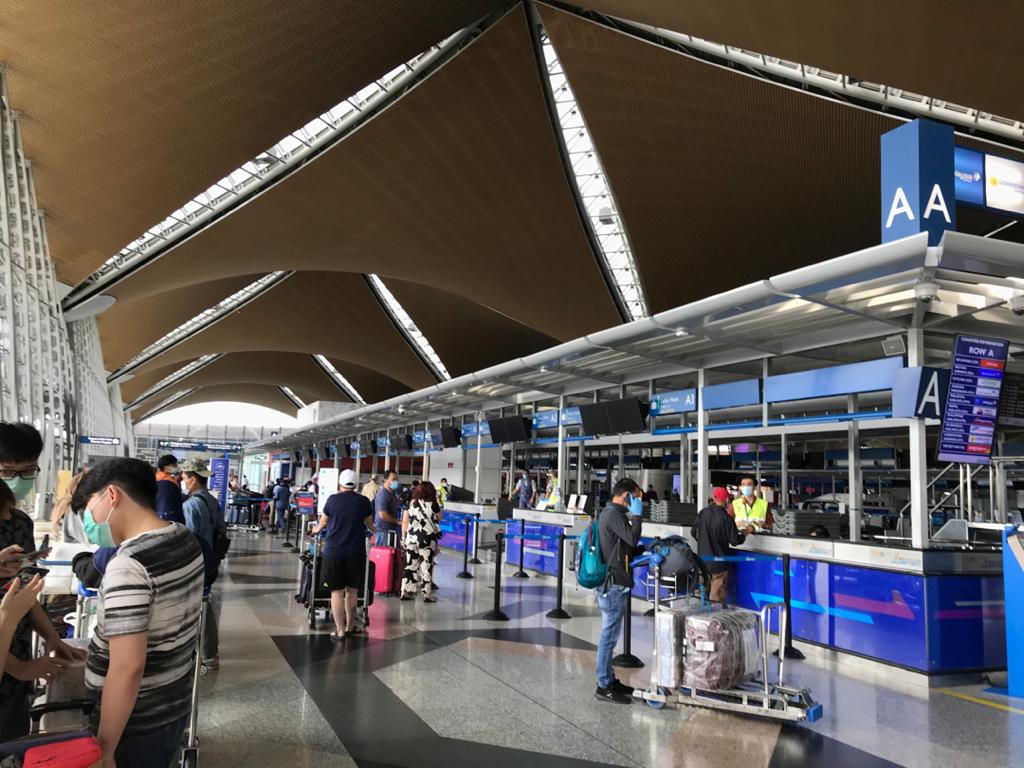KUALA LUMPUR, Dec 3 — A year since Bloomberg’s Covid Resilience Ranking debuted in November 2020, Malaysia now ranks among the bottom at 50th out of the 53 largest economies.
In Bloomberg’s November 2021 Covid Resilience Ranking released last November 30, Malaysia ranked only above Vietnam, Indonesia, and the Philippines, with Malaysia maintaining its 50th spot from October. Singapore and Thailand placed 37th and 47th respectively.
Malaysia’s ranking gradually fell from its peak in November 2020 to among the worst countries in August this year, at the height of its epidemic, before picking up slowly, albeit still among the bottom-ranked nations.
Malaysia’s decline to “worse” ranking started last June after a steep fall from April.
The Omicron variant of concern, believed to be more transmissible than the Delta strain, has been reported in dozens of countries globally, including two imported cases in Singapore and two infections in India. Malaysia — with the world’s second lowest Covid-19 genomic sequencing over the past month — has yet to detect Omicron.
Southeast Asian countries, Bloomberg noted last November 24, replaced Latin American economies as the worst places to be during the pandemic in the second half of the year due to slow vaccine rollouts and resurgent coronavirus outbreaks.
The business news site declared Norway, Denmark, Finland, the United Arab Emirates, Canada, South Korea, and Switzerland as pandemic MVPS (most valuable players), as these countries never fell to the bottom half of the ranking over the past 12 months.
Malaysia was ranked the third-worst economy in Bloomberg’s ranking over the past year, ahead of Mexico and the Philippines.
Bloomberg’s Covid Resilience Ranking looks at the success of the world’s 53 biggest economies at containing Covid-19 with the least amount of social and economic disruption. Twelve indicators are measured, with equal weightage — across reopening progress, Covid-19 status, and quality of life — to produce a country’s resilience score that is the average performance across the dozen indicators.
Malaysia’s overall resilience score in last month’s ranking was 49.7 out of 100, the second-worst classification.
In the reopening progress category, Malaysia scored well on Covid-19 vaccination with 163.2 vaccine doses administered per 100, but scored badly for lockdown severity, flight capacity, and vaccinated travel routes.
Lockdown severity, or movement restrictions imposed by the government, is viewed negatively in the ranking due to disruptions on people’s lives. A higher score on lockdown severity denotes a less advantageous performance.
“Some may argue that strict lockdowns should be viewed positively, a sign a government is acting aggressively to control the virus. But nearly two years into the Covid crisis and with vaccination having a game-changing impact, the need to impose lockdowns reflects a failure to progress, and so we’re scoring it accordingly,” Bloomberg wrote.
For the Covid status category, Malaysia scored well across all indicators: 504 cases per 100,000 people over the past month; 1.5 per cent case fatality rate over the past three months; 936 total deaths per one million people since the start of the pandemic; and 4.6 per cent positive test rate.
In the quality of life category, Malaysia scored poorly on community mobility at -16.8 per cent and on 2021 gross domestic product (GDP) growth forecast at 3.5 per cent, but scored well for universal health care coverage and the Human Development Index produced by the United Nations Development Programme.
The community mobility indicator, which uses Google data, measures people’s real-time movements at retail, recreational, and work places to indicate people’s responses to Covid-19 restrictions in their daily lives.








